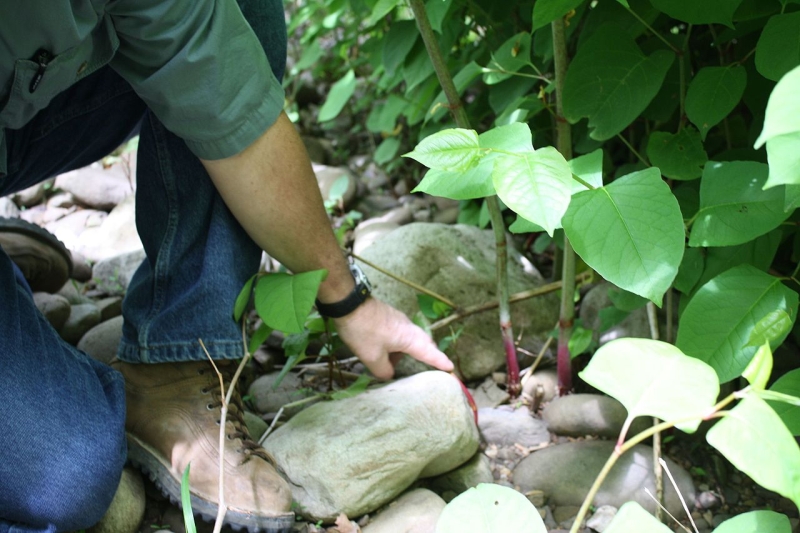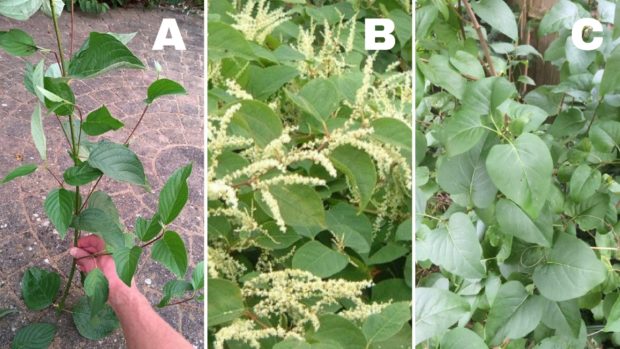
How Knotweed-Savvy Are You?
The Telegraph reported recently that a couple in Cornwall is suing a pensioner for £50,000 over an issue with Japanese Knotweed. They bought their seaside property from her 15 years ago but land that the pensioner still owned had the destructive weed growing nearby, of which the buyers were unaware. Due to the rapid growth of this plant, it has now crept onto their land and they claim it has devalued their home.
This case is not unusual, as issues caused by this invasive plant keep resurfacing all over the UK. But if you own a property or a piece of land, do you know what your Japanese knotweed responsibilities are, and would you be able to spot it? It’s important that you do, which is why at Hunters we’re asking, how knotweed-savvy are you?
Can you identify it?
Which of these three plants is Japanese Knotweed?

This most widespread form of knotweed can be identified by these distinctive features:
- Its growth pattern, which is due to its zig-zag stem, as each stem only has one node.
- The leaves are a mid-green colour, and are fairly smooth.
- The leaves have a shape often described as a heart, shield or shovel, because of their straight back edge.
Japanese Knotweed is a flowering plant; during late summer and early autumn you will find small creamy white flowers appear in the form of loose clusters.
If you haven’t managed to identify the plant yet, the answer is B.
Is it illegal to have Japanese Knotweed growing in your garden?
It is NOT illegal to have Japanese Knotweed growing in your garden, but you do have a legal responsibility to ensure it doesn’t spread. Should you choose to ignore it and allow it to spread, you could be charged with an anti-social behaviour offence, as stated in the Anti-social Behaviour, Crime and Policing Act 2014.
Therefore, if, as in the case described above, Japanese knotweed spreads from your land onto that of your neighbours, you will have broken the law.
It doesn’t behave like a normal weed.
This is certainly true. In fact, if you try cutting it back you will find that it grows even more vigorously. Eradicating this plant is not an easy job, as major roots can grow as much as 7ft below ground. A variety of chemicals and methods are known to work, but with the fear of re-growth if not completed successfully, many people turn to the professionals.
How should you dispose of Japanese Knotweed
This is certainly not a plant you can pop into your green waste bin. It is illegal to dispose of unwanted cuttings or soil from the removal of Japanese Knotweed yourself, as stated in the 1981 Wildlife & Countryside Act. This plant is considered so dangerous that the Environmental Protection Act 1990 classifies its cuttings as ‘controlled waste’. This is another reason why professional companies are called to eradicate and dispose of this invasive plant.
Will it devalue my home?
Yes, so it’s important that you react quickly should you find it growing on a property or piece of land that you own. “If you have any concerns it’s best just to get a specialist in. It may cost you money in the short term, but in the long term it could save the value of your house,” advises Graham Ellis, Director at the Royal Institution of Chartered Surveyors.






